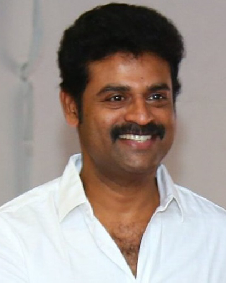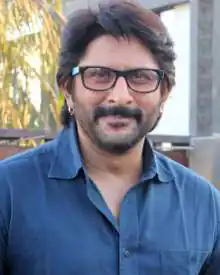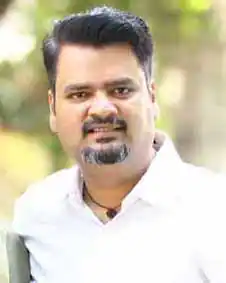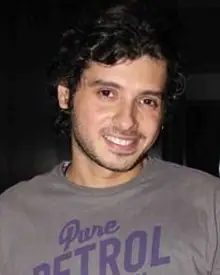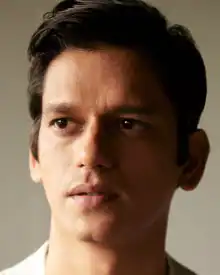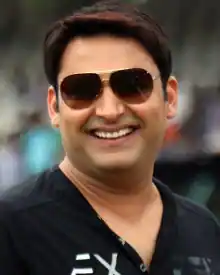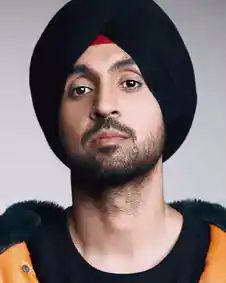X
Anurag Kashyap
Director/Producer/Actor
Anurag Kashyap Biography
Anurag Kashyap is a critically acclaimed Indian film director and screenwriter. As a director, he is known for Black Friday (2004), a controversial and award-winning Hindi film about the 1993 Bombay bombings, followed by No Smoking (2007), Dev D (2009), and Gulaal (2009). As a screenwriter, he wrote the scripts for the Filmfare Award-winning Satya (1998) and the Academy Award-nominated Canadian film Water (2005). He is considered one of the most versatile and prolific filmmakers in contemporary Hindi cinema.
In 1999, Kashyap won the Best Screenplay award for Satya at the Star Screen Awards. The next year, his short film, Last Train to Mahakali, won the Special Jury Award at the same awards. His feature film debut, Black Friday, won the Grand Jury Prize at the 3rd Annual Indian Film Festival of Los Angeles (2005), and he was a nominee for the Golden Leopard (Best Film) at the 57th Locarno International Film Festival (2004).
Early Life and Background
Anurag Kashyap was born in Gorakhpur, Uttar Pradesh, where his father worked for the state electricity board, though he grew up in several cities, including Varanasi and Saharanpur. He did his early schooling in Dehradun and, from age eight onward, at the Scindia School in Gwalior. He was fascinated with films right from childhood, and even at age five, he would watch Hindi films like Kora Kagaz and Aandhi at a nearby film club and open-air theater. This came to an end once he began his schooling. Since Kashyap wanted to become a scientist, he basically went to Delhi for his higher studies and enrolled himself in a zoology course at the Hansraj College (University of Delhi); he graduated in 1993.
During his college days, he started watching films again and also got involved with drugs and alcohol. He was confused and depressed and had joined a street theatre group, Jana Natya Manch; he ended up doing a lot of street plays. The same year, a couple of friends introduced him to world cinema; they "urged [him] to catch a de Sica retrospective" at the International Film Festival of India. In ten days, he ended up seeing a total of 55 films at the festival, and de Sica's Bicycle Thieves was the film that influenced him the most; watching it was "an epiphany." "I watched movies from all different perspectives, and in a way, you can say that these films changed my life and its meaning completely for me." "Just that one film festival, and I decided that this is what I want to be a part of—in the next five months, I was in Mumbai."
Career
The film festival and de Sica made a deep impact on Kashyap; he wanted to do something with films, and so he landed in Mumbai in June 1993 with INR 5,000–6,000 in his pocket. The money ran out after he stayed for a couple of days in a "good hotel." He spent the next eight months on the streets, staying in lofts, "sleeping on beaches," "under a water tank," and in the St. Xavier's College boys hostel.
He managed to find work at Prithvi Theatre, but his first play remained incomplete because the director passed away. He then joined Makrand Deshpande's troupe, Samrangan, but left because he "could not face life." He wanted to act, but he couldn't act with all that frustration. Kashyap then wrote an "eight-page drama" called Main (I), which did well at college drama festivals, and people advised him to pursue a career in writing. Kashyap's play was appreciated by directors like Govind Nihalani and Saeed Mirza.
Nihalani was working on a television series based on classic works, and he gave Kashyap a couple of books - a play by Henrik Ibsen and Franz Kafka's The Trial - so that he could write scripts based on them. Kashyap read The Trial and told Nihalani that the book could only be made into an animation film, not a regular one. Nihalani asked him to reconsider. But the books had "confused Kashyap so much that he started thinking that he didn't know anything!" Kashyap started avoiding Nihalani; he went into "hibernation for a year and a half, and kept reading."
In 1995, an acquaintance introduced Kashyap to Shivam Nair, director of the 2006 film Ahista Ahista. The day they met, Kashyap watched Scorsese's Taxi Driver at Nair's place on a "bad vcr" and using a "mutilated tape"; the film fascinated him. "I want to write something," Kashyap told Nair, and he spent the next few days sitting in a corner as people like Sriram Raghavan, Sridhar Raghavan, and Shiv Subramaniam discussed things.
Sridhar introduced him to the world of books—authors like James M. Cain. The team was working on two projects, one of which was a docudrama, Auto Narayan, based on the life of serial killer Auto Shankar; the second was a film scripted by Kashyap. Auto Narayan got delayed because the script penned by Subramaniam was not "working." Kashyap rewrote the script and got credit for the same, and the second film was scrapped. But Kashyap had now proven himself, and so he got access to a VCR and television set. He started bringing in videotapes and spent many days watching films.
Kashyap got his first major break when actor Manoj Bajpai, who was working on Daud, showed Auto Narayan to producer-director Ramgopal Varma. Varma liked Kashyap's work and hired him to write the script for Satya. In September 1993, while Kashyap stayed at the St. Xavier's Boys Hostel, he used to hang out with the members of a band called Greek (later Pralay). He took copious notes on how they lived their lives-forty pages in a small notebook - and began writing the script - "in bits and pieces" -for a film he called Mirage but later changed to Paanch.
Kashyap had seen ex-VJ Luke Kenny in a Vikram Kapadia play and approached him with an incomplete script, but nothing came of it. Later on, while working with Nair, he came across files related to the Joshi-Abhyankar murders that took place in Pune in 1976. "Five very ordinary college kids viciously murdered nine people." I got what I needed to finish my script then."
He had also seen a film, Fun, about two mentally unstable girls murdering an elderly woman. And Paanch was ready to be made into a film. Kashyap said, "There was a structure in Fun, which you will also see in Paanch." There was something fun. When I began looking for it, I saw a pattern in Last Train to Mahakali, in my own film Paanch, and in Auto Narayan. All three films had a similar formula. "I can analyse it because I have." Satya was a commercial and critical success, and Kashyap collaborated with Varma on a few more films, writing the screenplay and dialogues for Kaun? (1999) and the dialogues for Shool (1999). He also wrote the dialogues for Mani Ratnam's Yuva (2004).
Kashyap made his directorial debut with Paanch, with Kay Kay Menon as the lead in 2000. However, the film ran into trouble with the Indian censor board and hasn't been released to date. In 2007, he adapted Stephen King's 1978 short story Quitters, Inc. as No Smoking, which despite being received well by critics, didn't do well at the box-office. In March 2009, while announcing that he would steer away from screenwriting after his current assignments to concentrate on direction, Kashyap also announced two new film projects: Bombay Velvet, with John Abraham, a thriller based on real incidents in the 1960s, to be followed by Doga, based on the Raj Comics super hero.
In 1999, Kashyap won the Best Screenplay award for Satya at the Star Screen Awards. The next year, his short film, Last Train to Mahakali, won the Special Jury Award at the same awards. His feature film debut, Black Friday, won the Grand Jury Prize at the 3rd Annual Indian Film Festival of Los Angeles (2005), and he was a nominee for the Golden Leopard (Best Film) at the 57th Locarno International Film Festival (2004).
Early Life and Background
Anurag Kashyap was born in Gorakhpur, Uttar Pradesh, where his father worked for the state electricity board, though he grew up in several cities, including Varanasi and Saharanpur. He did his early schooling in Dehradun and, from age eight onward, at the Scindia School in Gwalior. He was fascinated with films right from childhood, and even at age five, he would watch Hindi films like Kora Kagaz and Aandhi at a nearby film club and open-air theater. This came to an end once he began his schooling. Since Kashyap wanted to become a scientist, he basically went to Delhi for his higher studies and enrolled himself in a zoology course at the Hansraj College (University of Delhi); he graduated in 1993.
During his college days, he started watching films again and also got involved with drugs and alcohol. He was confused and depressed and had joined a street theatre group, Jana Natya Manch; he ended up doing a lot of street plays. The same year, a couple of friends introduced him to world cinema; they "urged [him] to catch a de Sica retrospective" at the International Film Festival of India. In ten days, he ended up seeing a total of 55 films at the festival, and de Sica's Bicycle Thieves was the film that influenced him the most; watching it was "an epiphany." "I watched movies from all different perspectives, and in a way, you can say that these films changed my life and its meaning completely for me." "Just that one film festival, and I decided that this is what I want to be a part of—in the next five months, I was in Mumbai."
Career
The film festival and de Sica made a deep impact on Kashyap; he wanted to do something with films, and so he landed in Mumbai in June 1993 with INR 5,000–6,000 in his pocket. The money ran out after he stayed for a couple of days in a "good hotel." He spent the next eight months on the streets, staying in lofts, "sleeping on beaches," "under a water tank," and in the St. Xavier's College boys hostel.
He managed to find work at Prithvi Theatre, but his first play remained incomplete because the director passed away. He then joined Makrand Deshpande's troupe, Samrangan, but left because he "could not face life." He wanted to act, but he couldn't act with all that frustration. Kashyap then wrote an "eight-page drama" called Main (I), which did well at college drama festivals, and people advised him to pursue a career in writing. Kashyap's play was appreciated by directors like Govind Nihalani and Saeed Mirza.
Nihalani was working on a television series based on classic works, and he gave Kashyap a couple of books - a play by Henrik Ibsen and Franz Kafka's The Trial - so that he could write scripts based on them. Kashyap read The Trial and told Nihalani that the book could only be made into an animation film, not a regular one. Nihalani asked him to reconsider. But the books had "confused Kashyap so much that he started thinking that he didn't know anything!" Kashyap started avoiding Nihalani; he went into "hibernation for a year and a half, and kept reading."
In 1995, an acquaintance introduced Kashyap to Shivam Nair, director of the 2006 film Ahista Ahista. The day they met, Kashyap watched Scorsese's Taxi Driver at Nair's place on a "bad vcr" and using a "mutilated tape"; the film fascinated him. "I want to write something," Kashyap told Nair, and he spent the next few days sitting in a corner as people like Sriram Raghavan, Sridhar Raghavan, and Shiv Subramaniam discussed things.
Sridhar introduced him to the world of books—authors like James M. Cain. The team was working on two projects, one of which was a docudrama, Auto Narayan, based on the life of serial killer Auto Shankar; the second was a film scripted by Kashyap. Auto Narayan got delayed because the script penned by Subramaniam was not "working." Kashyap rewrote the script and got credit for the same, and the second film was scrapped. But Kashyap had now proven himself, and so he got access to a VCR and television set. He started bringing in videotapes and spent many days watching films.
Kashyap got his first major break when actor Manoj Bajpai, who was working on Daud, showed Auto Narayan to producer-director Ramgopal Varma. Varma liked Kashyap's work and hired him to write the script for Satya. In September 1993, while Kashyap stayed at the St. Xavier's Boys Hostel, he used to hang out with the members of a band called Greek (later Pralay). He took copious notes on how they lived their lives-forty pages in a small notebook - and began writing the script - "in bits and pieces" -for a film he called Mirage but later changed to Paanch.
Kashyap had seen ex-VJ Luke Kenny in a Vikram Kapadia play and approached him with an incomplete script, but nothing came of it. Later on, while working with Nair, he came across files related to the Joshi-Abhyankar murders that took place in Pune in 1976. "Five very ordinary college kids viciously murdered nine people." I got what I needed to finish my script then."
He had also seen a film, Fun, about two mentally unstable girls murdering an elderly woman. And Paanch was ready to be made into a film. Kashyap said, "There was a structure in Fun, which you will also see in Paanch." There was something fun. When I began looking for it, I saw a pattern in Last Train to Mahakali, in my own film Paanch, and in Auto Narayan. All three films had a similar formula. "I can analyse it because I have." Satya was a commercial and critical success, and Kashyap collaborated with Varma on a few more films, writing the screenplay and dialogues for Kaun? (1999) and the dialogues for Shool (1999). He also wrote the dialogues for Mani Ratnam's Yuva (2004).
Kashyap made his directorial debut with Paanch, with Kay Kay Menon as the lead in 2000. However, the film ran into trouble with the Indian censor board and hasn't been released to date. In 2007, he adapted Stephen King's 1978 short story Quitters, Inc. as No Smoking, which despite being received well by critics, didn't do well at the box-office. In March 2009, while announcing that he would steer away from screenwriting after his current assignments to concentrate on direction, Kashyap also announced two new film projects: Bombay Velvet, with John Abraham, a thriller based on real incidents in the 1960s, to be followed by Doga, based on the Raj Comics super hero.
Celeb Birthdays
-
Vanessa Kirby Apr 18
-
America Ferrera Apr 18
-
Prem Kumar Apr 18
-
Kate Hudson Apr 19
-
Arshad Warsi Apr 19
-
Lakshya Lalwani Apr 19
-
Hareesh Narayan Apr 19
Celebs In Spotlight
Enable




 Click it and Unblock the Notifications
Click it and Unblock the Notifications





